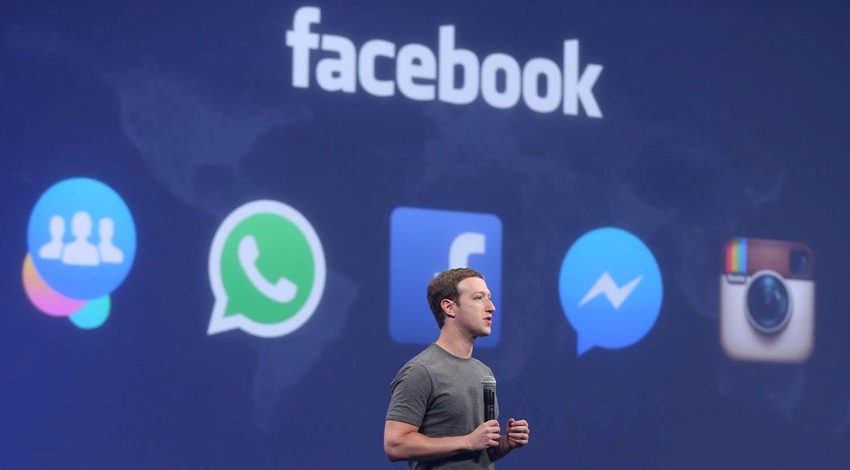Facebook bigs itself up as a conversation platform – watch out Twitter
Facebook has reported healthy growth in advertising revenues over the last quarter, and also outlined its ambitions to take on Twitter and traditional search engines.
July 28, 2016

Facebook has reported healthy growth in advertising revenues over the last quarter, and also outlined its ambitions to take on Twitter and traditional search engines.
Speaking on the company’s quarterly earnings call, CEO Mark Zuckerberg highlighted his intentions to expand the boundaries of Facebook, mounting a challenge to conversation platform Twitter, building search capabilities for businesses on the social network, as well as directing notable investment into video capabilities. Advertising revenues across the period increased 63% year-on-year to $6.2 billion, with mobile accounting for 84%, though the team are seemingly not satisfied as it prepares to venture into new markets.
“We have a saying at Facebook that our journey is only 1% done,” said Zuckerberg. “And while I’m happy with our progress, we have a lot more work to do to grow our community and connect the whole world. That means making big investments and taking risks, focusing not just on what Facebook is but on what it can be.”
While Twitter was not mentioned specifically during the call, Zuckerberg outlined his intentions to make Facebook the platform where users search for and express their views on current affairs. Most users would currently search for and post updates to their immediate circle of contacts, though this is an aspect which Zuckerberg wants to change. When looking at keyword searches, the team claim there are now 2 billion searches per day of its 2.5 trillion posts, growing 33% over the last nine months. The challenges towards Twitter was not implicitly mentioned by the Facebook chief, though the team are seemingly on a mission to create a conversation platform which extends beyond an users immediate circle, a space which has been dominated by Twitter in recent years.
Another area of potential growth for Facebook is commercial search. According to Zuckerberg, over a third of small and medium businesses in the states do not have a website, though Facebook could provide an alternative. Setting up and managing a website can be challenging, as well as for those who are less technically able, the team are promoting the use of the platform to create company pages and build the online presence of these organizations through Facebook. Although this is a long-term ambition, and the team are not in a stage where notable revenues are realistic, it would appear to be a move to provide an alternative to traditional search engines.
“This is why Facebook pages are the mobile solutions for many of the 60 million businesses using our products each month in the U.S. and around the world,” said Zuckerberg. “We’ve made it easy for business owners to manage their Facebook page from their mobile device. Over 85% of active business pages use mobile, and 40% of active advertisers have created a Facebook ad on their mobile device.
“So when we talk about our strategy (commercial search), I often talk about how when we develop new products we think about it in three phases. First, building a consumer use case; then, second, making it so that people can organically interact with businesses; and then third, on top of that, once there’s a large volume of people interacting with businesses. Give businesses tools to reach more people and pay, and that’s ultimately the business opportunity.
“I’d say, we’re around the second phase of that in search now.”
Artificial intelligence is another area which ties into the commercial capabilities of search, as once AI is perfected by the team, it does offer the opportunity to dramatically increase the relevance of ads put in front of the consumer. While most adverts are placed on historical data and previous customer behaviour, the potential of AI is intuition, the ability to make human decisions on what a potential customer would be interested it. This quarter, Facebook announced the development of DeepText, a deep learning based engine that can understand the context of several thousand posts per second across 20 different languages. It’s the beginning of the move towards AI, but a promising start.
As with other social media brands, video has been outlined as a priority for the team, building on the theme of consumer trends towards mobile. Most recently Facebook has been focused on the implementation of live video, though Zuckerberg highlighted the team will continue to invest in video platforms, to capitalize on the growing role of video in social media.
“We’re also working on new tools to help people express themselves and understand what’s going on with the people they care about. Ten years ago, most of what we shared and consumed online was text. Now its photos, and soon most of it will be video. We see a world that is video first with video at the heart of all of our apps and service.”
The shift towards mobile is fast changing the way customers consume and interact with media, most notably video. Before the phenomena of video can be capitalized on, the right capabilities need to be in place, and firstly this means investment.
All-in-all, most people would comment this has been a successful quarter for the social media giant. Total revenues are up to $6.4 billion, a 59% increase, daily active users standing at 1.13 billion on average for June 2016, an increase of 17% year-over-year, and monthly active users at 1.71 billion as of June 30, 2016, an increase of 15% year-over-year. Facebook has arguably been the most successful company at capitalizing on its captured audience, and should it effectively build capabilities in the conversation and search segments, it will be a worrying sign for Twitter and more traditional search engines.
About the Author(s)
You May Also Like











_1.jpg?width=300&auto=webp&quality=80&disable=upscale)


.png?width=800&auto=webp&quality=80&disable=upscale)